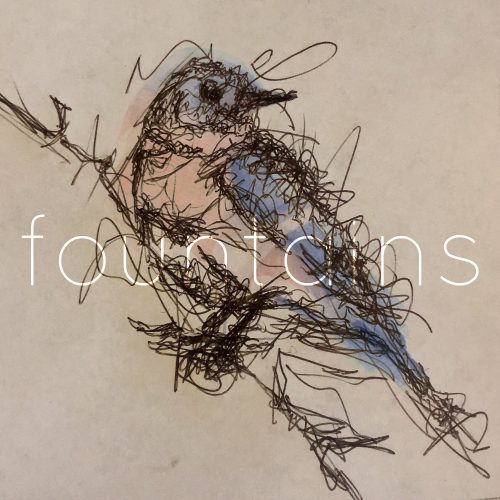fountains‘ new song “The Border” is quite the mystery. With the instruments acting as the driving force of the song, the lyrics are quite powerful, and like anything powerful, greatly open to interpretation.
I want to start with the musical side of “The Border” and sideline its lyrical component for a bit. My reason for this is simple: it starts with a 30 second instrumental (and ends with one that’s half the time). In addition to this intro, the main two instruments ‒ piano and drums ‒ are given the stage in between the verse-chorus-verse-chorus lyrical progression. While the drums keep the beat, the piano sets the tone, and consequently tells a story all by itself. While the same set of chords are generally played throughout, it certainly spices things up. More prominently heard during its solos, it plays descending broken chords; the highest note is played first, and its lowest note, last.
Why aren’t they ascending broken chords?
Why are they broken chords at all?
Both good questions. A broken chord, especially when utilized so frequently, sets a broken tone (gee, can’t imagine where that conclusion came from). In other words, broken chords elicit a somber feeling within us when we hear them. Yes, they are extremely pretty, but in a devastating way. With this in mind, playing them in a descending fashion most of the time only adds to the emotional state conjured up by the broken chords in the first place.
Now, let’s move on to the lyrics, since now we know the “feel” of the song. Mostly, I found them to be vague, due to the lack of explicitness, but vague is good, because then you can imagine twenty five different interpretations for a single line.
Let’s look at the first verses:
Wish I hadn’t walked away,
wish I figured it out on my own.
My beliefs I had to tuck away,
your silver lined cloud, just my doubt.
Yeah, so don’t mind me,
just passing by with my head in my hands
and a broken down van at the border.
It ain’t no fun getting older, so it seems.
The first stanza indicates our singer is referring to a breakup: one that he initiated. At the same time, the feeling of regret is elicited, since he thinks he could’ve solved whatever issues he and his significant other had been going through instead of merely walking away. Furthermore, he continues to kick himself because that “silver lined cloud,” a.k.a. his partner’s hope, double functioned as his own doubt. It’s like the relationship was sabotaged by his own lack of hope.
He continues to say that his head is in his hands, which makes sense considering how annoyed he probably is with himself, and then mentions a broken van at the border.
Now here’s where you must ask, “what border?” because I have no concrete idea. At first I thought it could be the “border” of the relationship, and that broken down van is representative of his own state of mind. He was at the very precipice of his relationship, and instead of fixing it, he broke it down.
OR!
This border could also be that between life and death. Yes that’s a bit of a stretch, but I came to that conclusion based on the following line, “it ain’t no fun getting older,” which is also repeated as “it ain’t no use getting older” at the end of the second verse.
And then I thought:
Maybe the border is the metaphorical border between life and death which is metaphorical for the life and death of the relationship. I took a lot of leaps to get here, but I think it’s plausible.
The last thing I want to address is the chorus, which is one line:
I’m looking for an exit sign to save me.
After thinking of about six different things this could mean I concluded that this one seemed to click best:
The “exit sign” leads to a pain free existence. He wants to be saved from the emotional pain that he thinks is practically self-inflicted.
Now it’s your turn to listen to it to try and figure it out!







